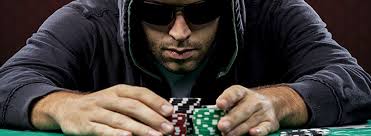The Rise of Short-Handed Poker – Strategy and Tips
Short-handed games typically involve more action and require aggressive, strong play. As a result, these smaller-scale contests tend to provide greater entertainment as well as profit potential.
Tight players need to widen their opening ranges. This adjustment can expedite learning processes and quickly build poker skill.
Game dynamics
Short-handed poker games present you with less of an opportunity to obtain strong hands, forcing you to maximize the value from medium strength hands. Being aware of opponents’ playing styles and exploiting weaknesses requires both focus and patience; plus blinds increases faster.
Like full-table games, short-handed poker requires that you loosen your starting hand requirements and become more willing to raise and 3-bet from late positions – giving yourself more chances to steal blinds and build pots. Furthermore, knowing your opponents well allows for maximum profit exploitation through studying their betting patterns as well as pre and post flop strategies.
Betting intervals
Short hand poker features fewer participants than its full-ring counterpart, typically six. As it allows more hands per hour to be played per hour and increases potential earnings and experience gained, short hand makes for an exciting and engaging game experience.
Short-handed poker requires a different strategy from full-ring games. One adjustment should be playing more aggressively as blinds will happen more frequently and your chips will dwindle more rapidly. Furthermore, using your opponents’ tendencies against them could also prove advantageous by widening hand ranges or making more bluffs; but always remain focused and attentive as losing focus could result in making bad decisions and ultimately leading to chip losses – the best way to combat this challenge would be practicing before going live with any real opponents!
Aggression
As soon as you’re playing short-handed poker, your aggression must be carefully calculated. Since fewer players mean shorter stacks and you will need to raise and re-raise more frequently. Furthermore, some hands’ values change – A8 or KT may not be considered attractive bluffs in full-ring games but could prove viable against short-handed opponents.
Not only should you be aggressive, but also study and exploit the weaknesses of your opponents. Do this by profiling them to understand their calling patterns, bluff spots and fold tendencies; doing this will enable you to build pots more quickly while increasing your win rate for an even faster learning curve.
Table position
When playing short-handed poker, table position is of utmost importance. As there are fewer players present, blinds tend to happen more frequently and the value of hands increases, as does the likelihood that opponents bet aggressively or call bluffs more frequently.
Players should therefore broaden their starting hand ranges and consider playing marginal hands that may not be considered optimal in full-ring games, such as suited connectors and small pairs. They should also pay close attention to opponent betting patterns and stack sizes.
As well as that, players should also be ready to raise and re-raise opponents when necessary. This makes it harder for your opponent to read your bets while giving stronger hands more value and potentially deceiving your opponent’s mind.
Patience
Short-handed games allow you to closely observe the playing styles and tendencies of your opponents, giving you insight into how best to approach the game and exploit their weaknesses. For example, you could capitalize on their tendency to call bluffs by playing more often yourself.
Short-handed games also give you the freedom to expand your starting hand range and include more marginal hands, such as suited connectors or small pairs, increasing the odds of creating stronger hands.
However, it’s important to keep in mind that your opponents will likely recognize your efforts at winning a pot and may call your value bets more frequently than usual compared to full table games. While this can be discouraging at first, persevere!




